
ViewTube is an alternative YouTube frontend that lets you watch, search and discover YouTube videos without ads or tracking. ViewTube is like Piped and Invidious. It’s built to be mobile and desktop friendly, with dark and light themes, and a touch-friendly video player with gestures. You can create an account separately from YouTube, read comments, watch playlists, subscribe to channels and receive push notifications for new uploads. In this step by step guide I will show you how to install ViewTube on your Synology NAS using Docker & Portainer.
STEP 1
Please Support My work by Making a Donation.
STEP 2
Install Portainer using my step by step guide. If you already have Portainer installed on your Synology NAS, skip this STEP. Attention: Make sure you have installed the latest Portainer version.
STEP 3
Go to File Station and open the docker folder. Inside the docker folder, create one new folder and name it viewtube. Follow the instructions in the image below.
Note: Be careful to enter only lowercase, not uppercase letters.
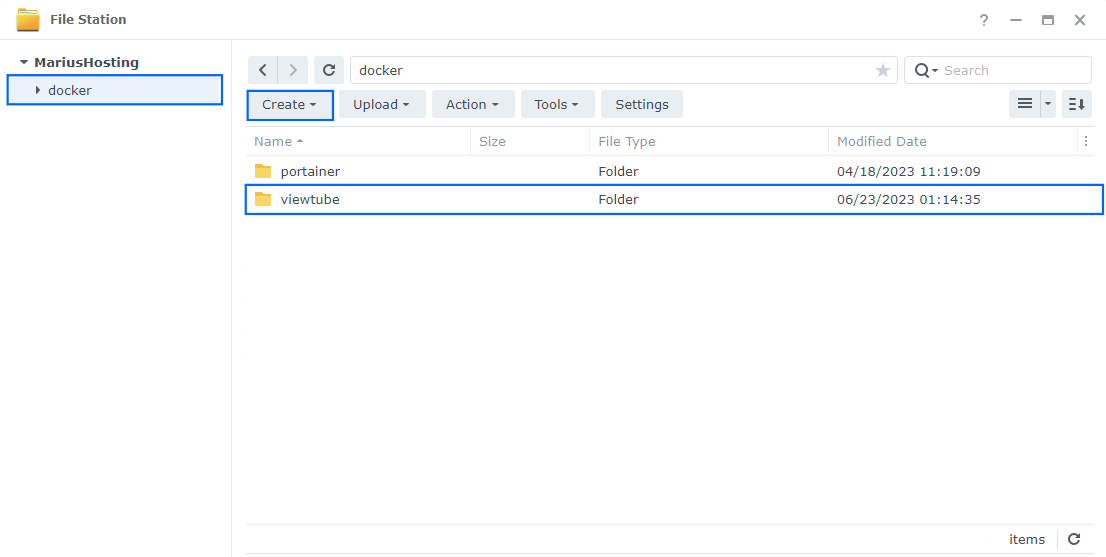
STEP 4
Now create three new folders inside the viewtube folder that you have previously created at STEP 3 and name them data, db, redis. Follow the instructions in the image below.
Note: Be careful to enter only lowercase, not uppercase letters.
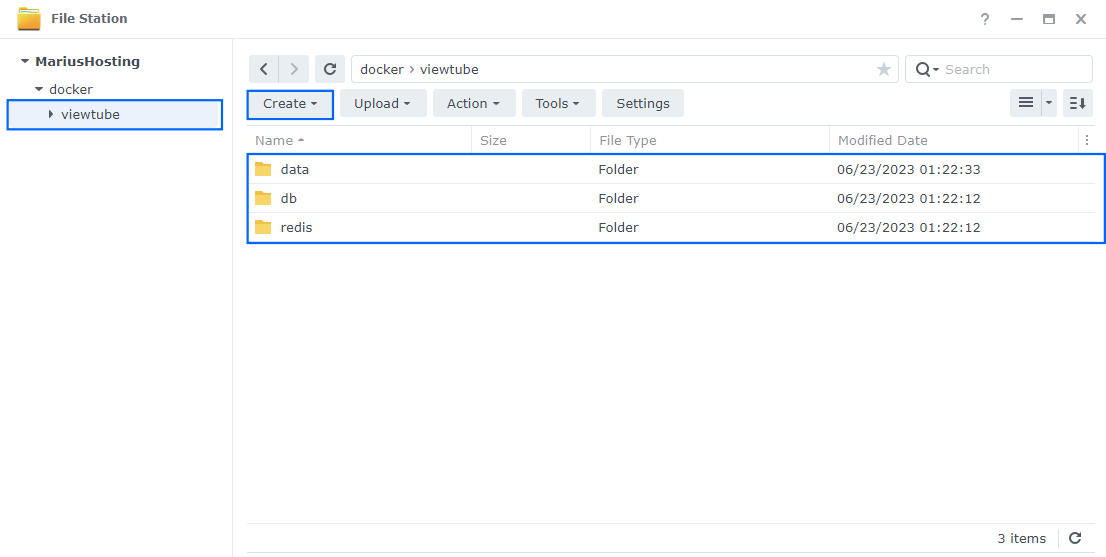
STEP 5
Right click on the viewtube folder that you have previously created at STEP 3 then click Properties. Follow the instructions in the image below.
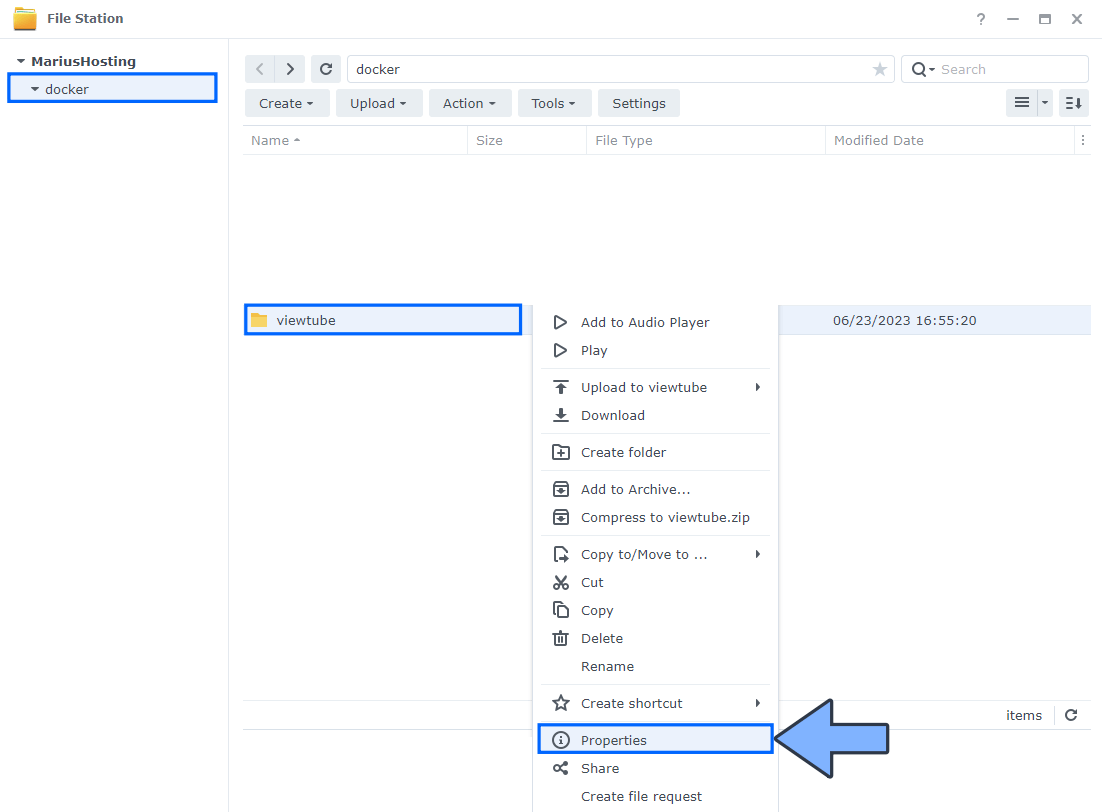
STEP 6
Go to the Permission tab, then click Advanced options. From the drop-down menu, choose “Make inherited permissions explicit“. Follow the instructions in the image below.
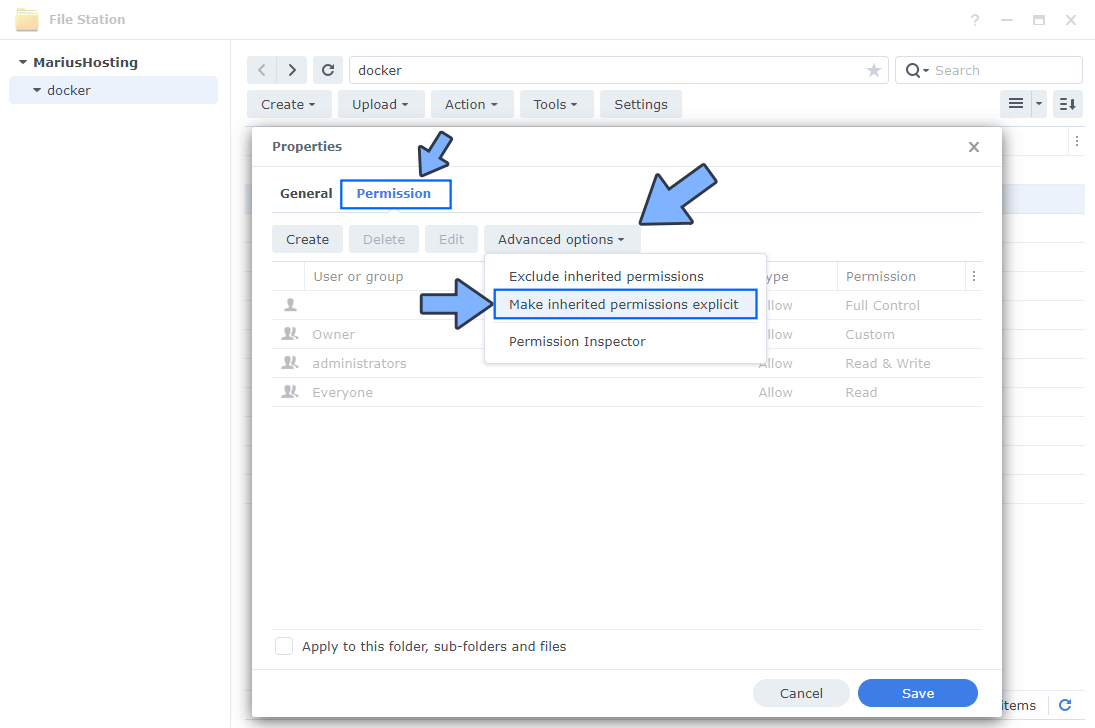
STEP 7
Select Everyone then click the Edit tab. Follow the instructions in the image below.
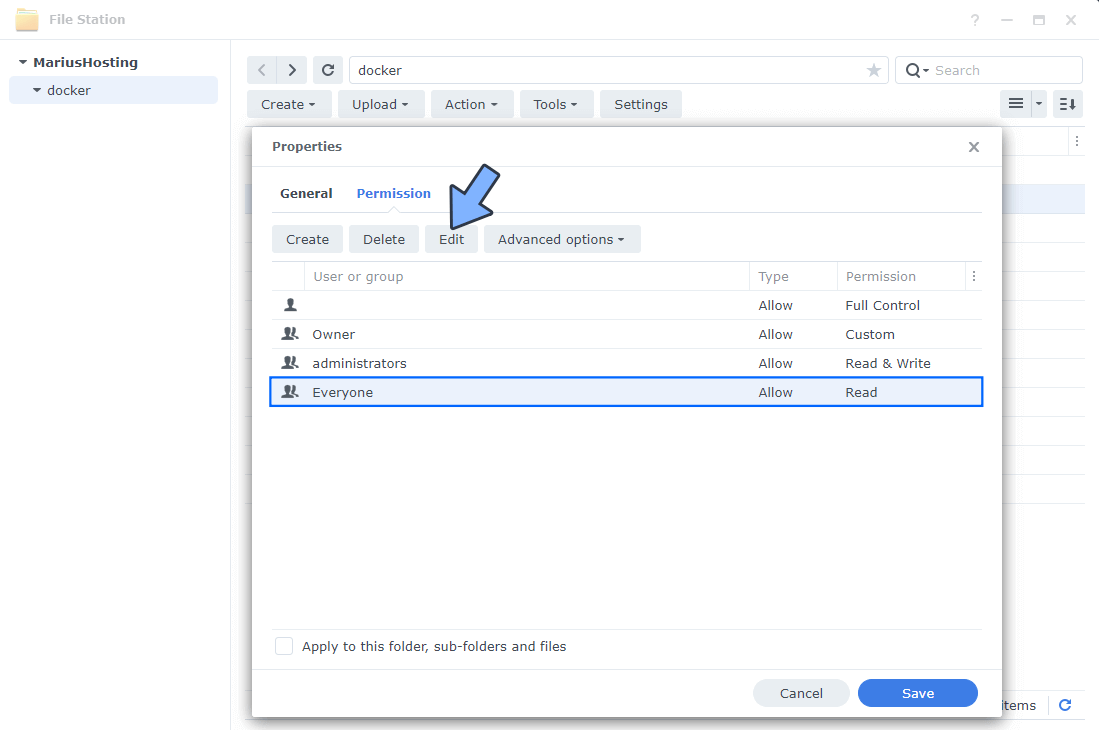
STEP 8
Check all Read and Write Permissions. Click Done. Follow the instructions in the image below.
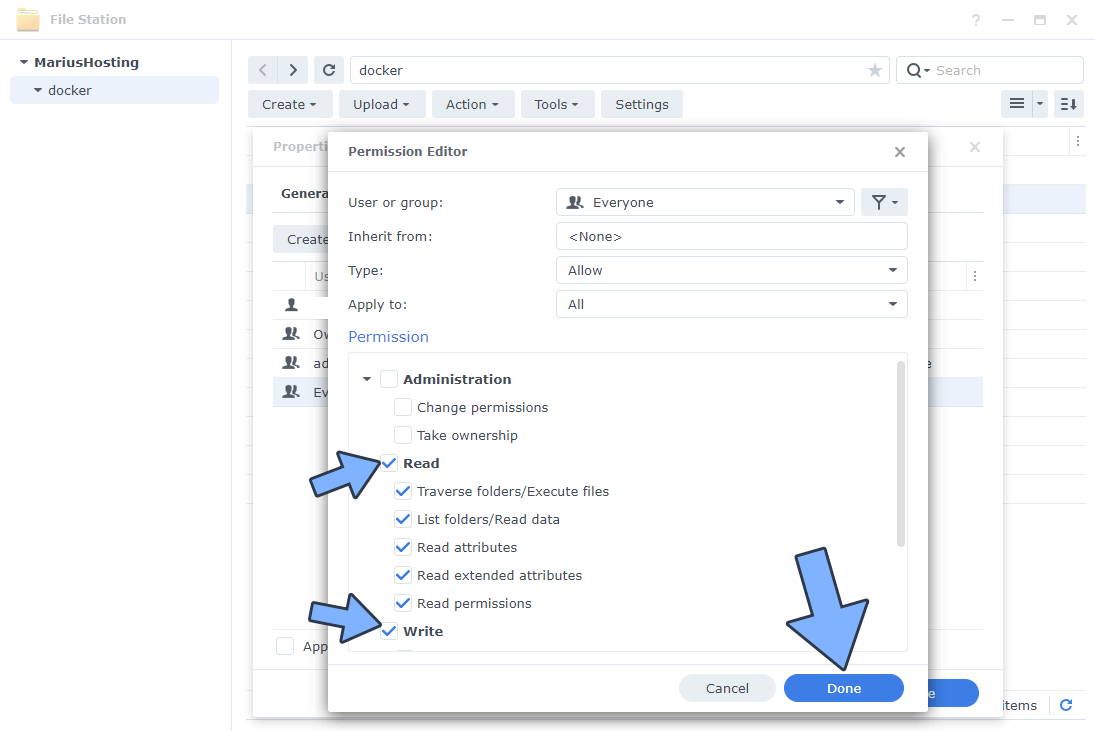
STEP 9
After you click Done on STEP 8, check “Apply to this folder, sub-folders and files“. Click Save. Follow the instructions in the image below.
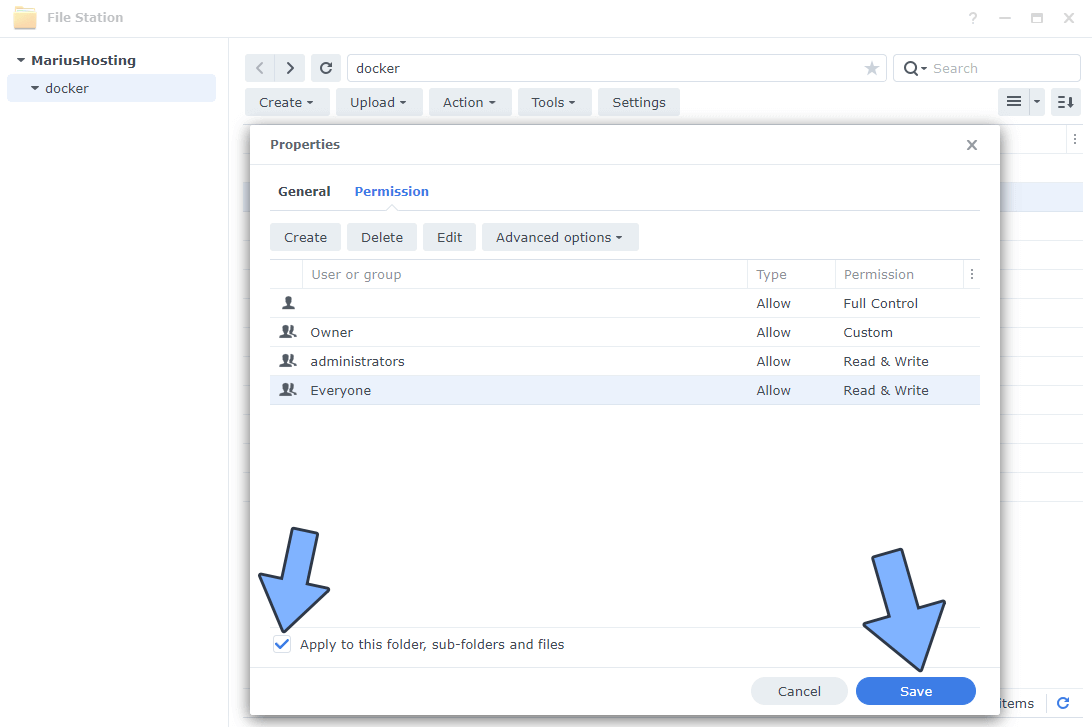
STEP 10
Log into Portainer using your username and password. On the left sidebar in Portainer, click on Home then Live connect. Follow the instructions in the image below.

On the left sidebar in Portainer, click on Stacks then + Add stack. Follow the instructions in the image below.

STEP 11
In the Name field type in viewtube. Follow the instructions in the image below.
services:
viewtube:
image: mauriceo/viewtube:dev
container_name: ViewTube
depends_on:
mongodb:
condition: service_healthy
redis:
condition: service_healthy
networks:
- viewtube
volumes:
- /volume1/docker/viewtube/data:/data:rw
environment:
- VIEWTUBE_DATABASE_HOST=mongodb
- VIEWTUBE_REDIS_HOST=redis
- VIEWTUBE_CLUSTERED=false
- YTDL_NO_UPDATE=true
ports:
- 8066:8066
restart: on-failure:5
mongodb:
restart: on-failure:5
image: mongo:4.4
container_name: ViewTube-DB
networks:
- viewtube
volumes:
- /volume1/docker/viewtube/db:/data/db:rw
- /volume1/docker/viewtube/db:/data/configdb:rw
healthcheck:
test: echo 'db.stats().ok' | mongo localhost:27017/test --quiet
interval: 10s
timeout: 10s
retries: 5
redis:
image: redis
container_name: ViewTube-REDIS
mem_limit: 256m
mem_reservation: 50m
cpu_shares: 768
networks:
- viewtube
security_opt:
- no-new-privileges:true
read_only: true
user: 1026:100
healthcheck:
test: ["CMD-SHELL", "redis-cli ping || exit 1"]
volumes:
- /volume1/docker/viewtube/redis:/data:rw
environment:
TZ: Europe/Bucharest
restart: on-failure:5
networks:
viewtube:
Note: Before you paste the code above in the Web editor area below, change the value numbers for user with your own UID and GID values. 1026 is my personal UID value and 100 is my personal GID value. You have to type in your own values. (Follow my step by step guide on how to do this.)
Note: Before you paste the code above in the Web editor area below, change the value for TZ. (Select your current Time Zone from this list.) Europe/Bucharest is my own Time Zone value. You have to type in your own Time Zone.
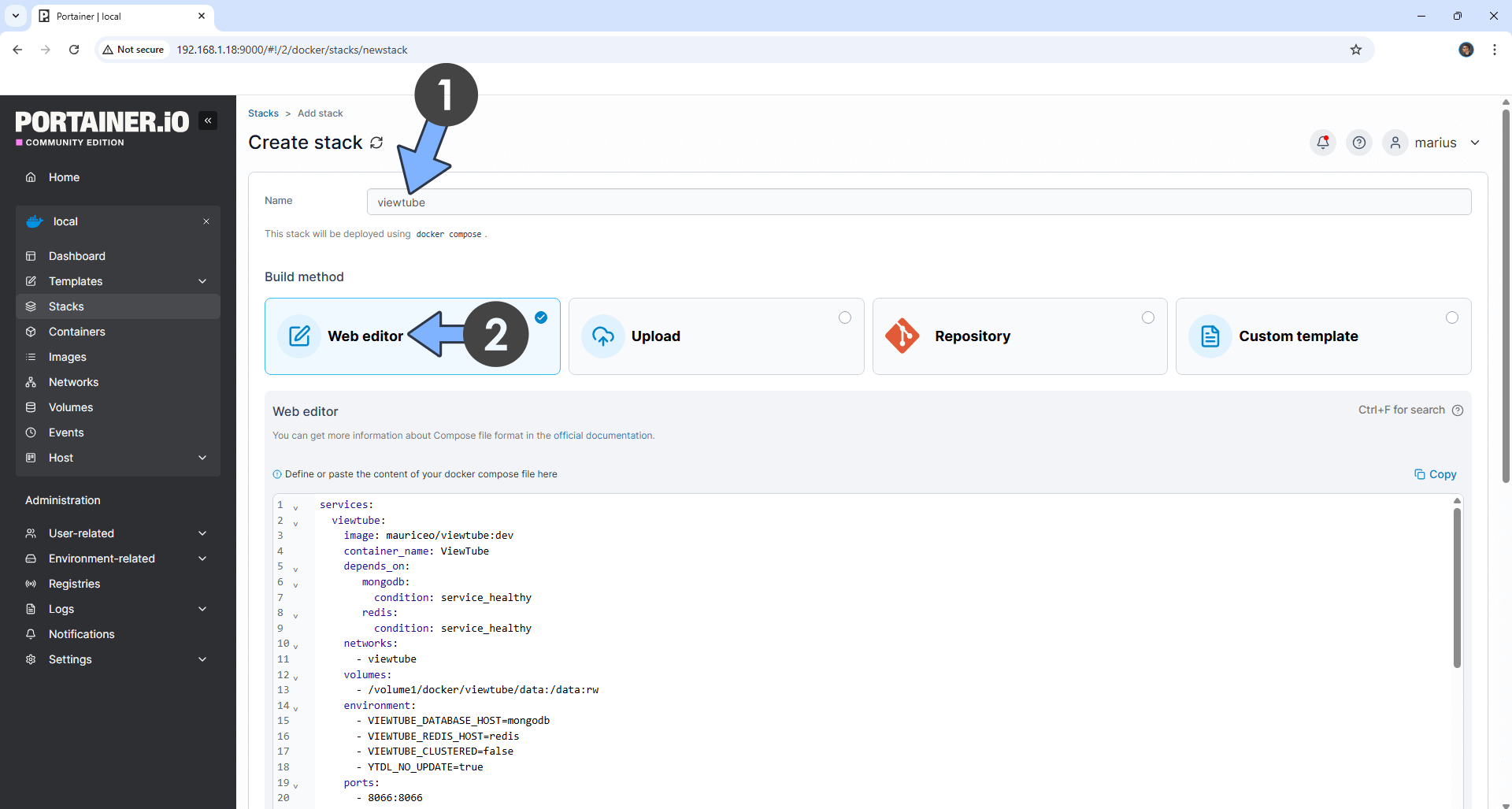
STEP 12
Scroll down on the page until you see a button named Deploy the stack. Click on it. Follow the instructions in the image below. The installation process can take up to a few minutes. It will depend on your Internet speed connection.
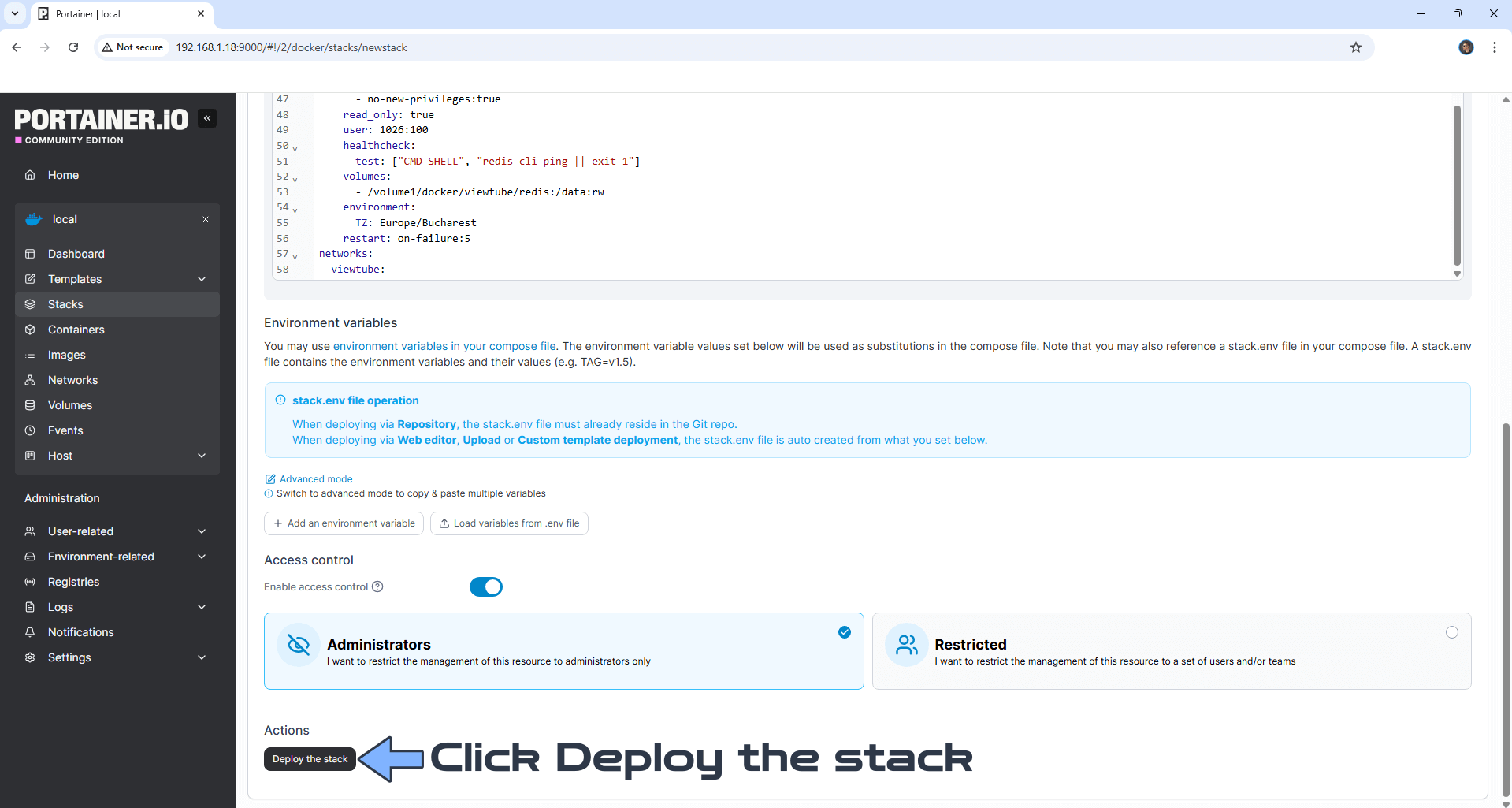
STEP 13
If everything goes right, you will see the following message at the top right of your screen: “Success Stack successfully deployed“.

STEP 14
🟢Please Support My work by Making a Donation. Almost 99,9% of the people that install something using my guides forget to support my work, or just ignore STEP 1. I’ve been very honest about this aspect of my work since the beginning: I don’t run any ADS, I don’t require subscriptions, paid or otherwise, I don’t collect IPs, emails, and I don’t have any referral links from Amazon or other merchants. I also don’t have any POP-UPs or COOKIES. I have repeatedly been told over the years how much I have contributed to the community. It’s something I love doing and have been honest about my passion since the beginning. But I also Need The Community to Support me Back to be able to continue doing this work.
STEP 15
The installation process can take up to a few seconds/minutes. It will depend on your Internet speed connection. Now open your browser and type in http://Synology-ip-address:8066 At the top right of the page, click on the user icon. Follow the instructions in the image below.
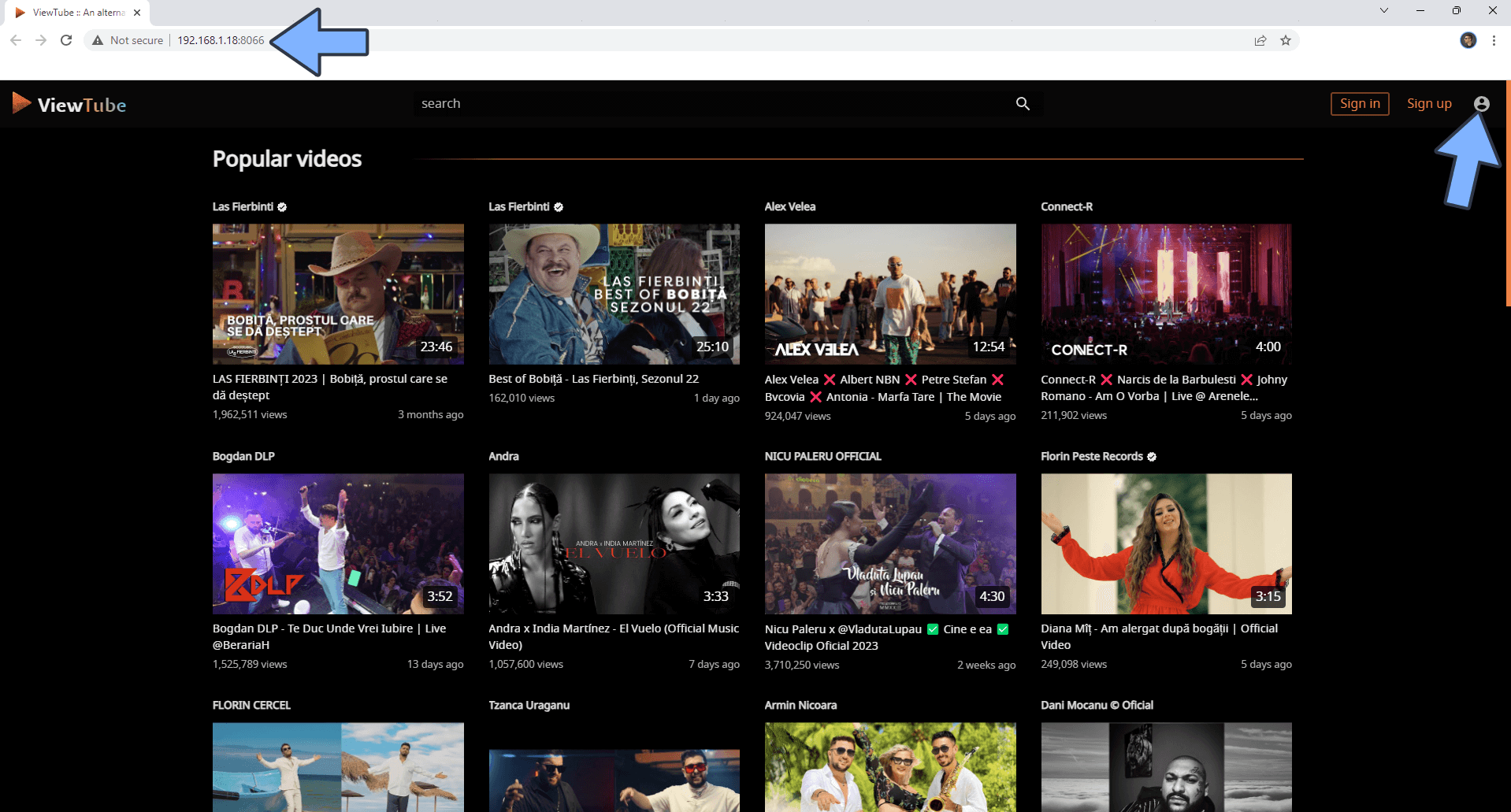
STEP 16
Click Settings. Follow the instructions in the image below.
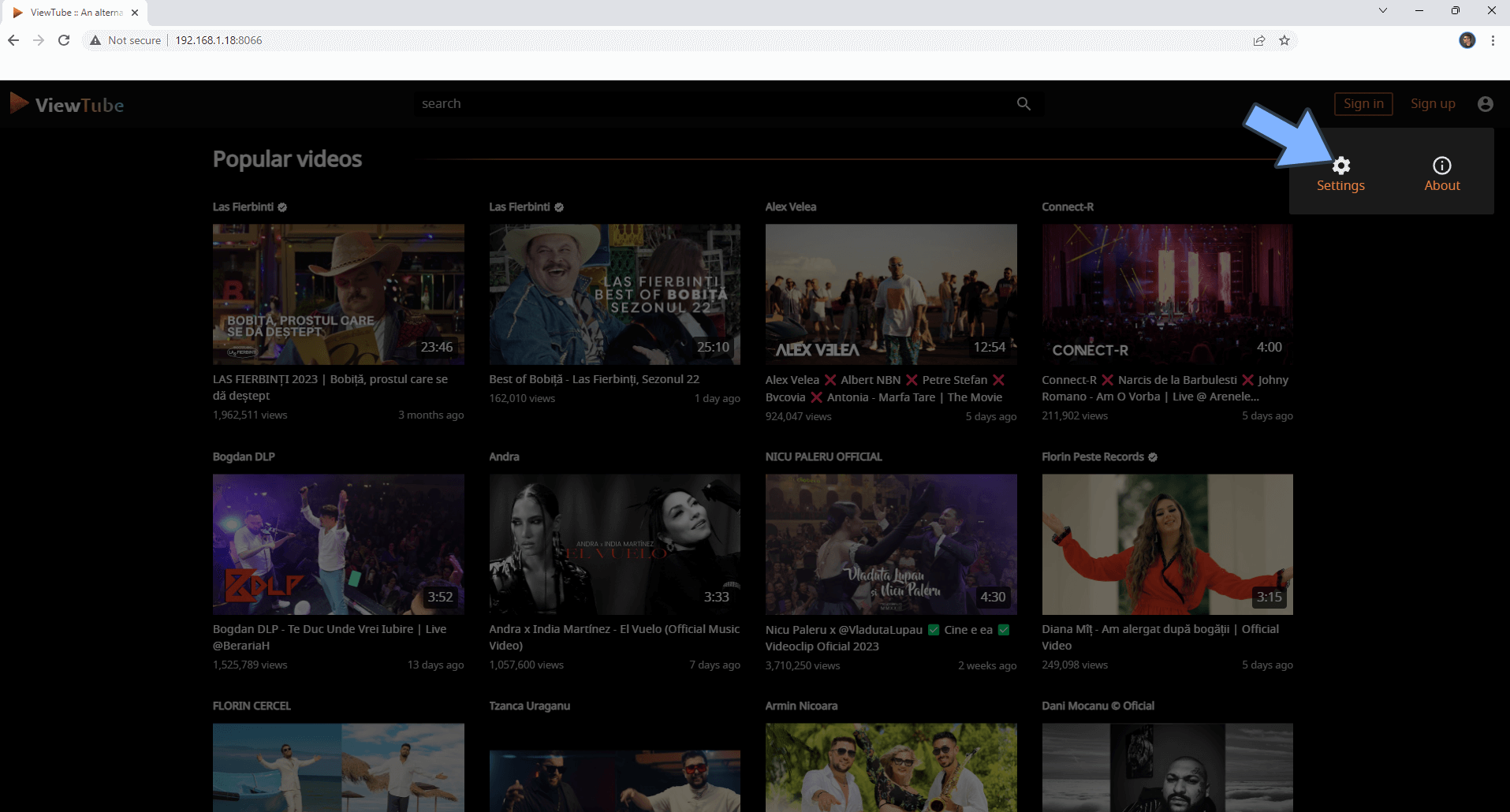
STEP 17
Select the options you prefer.
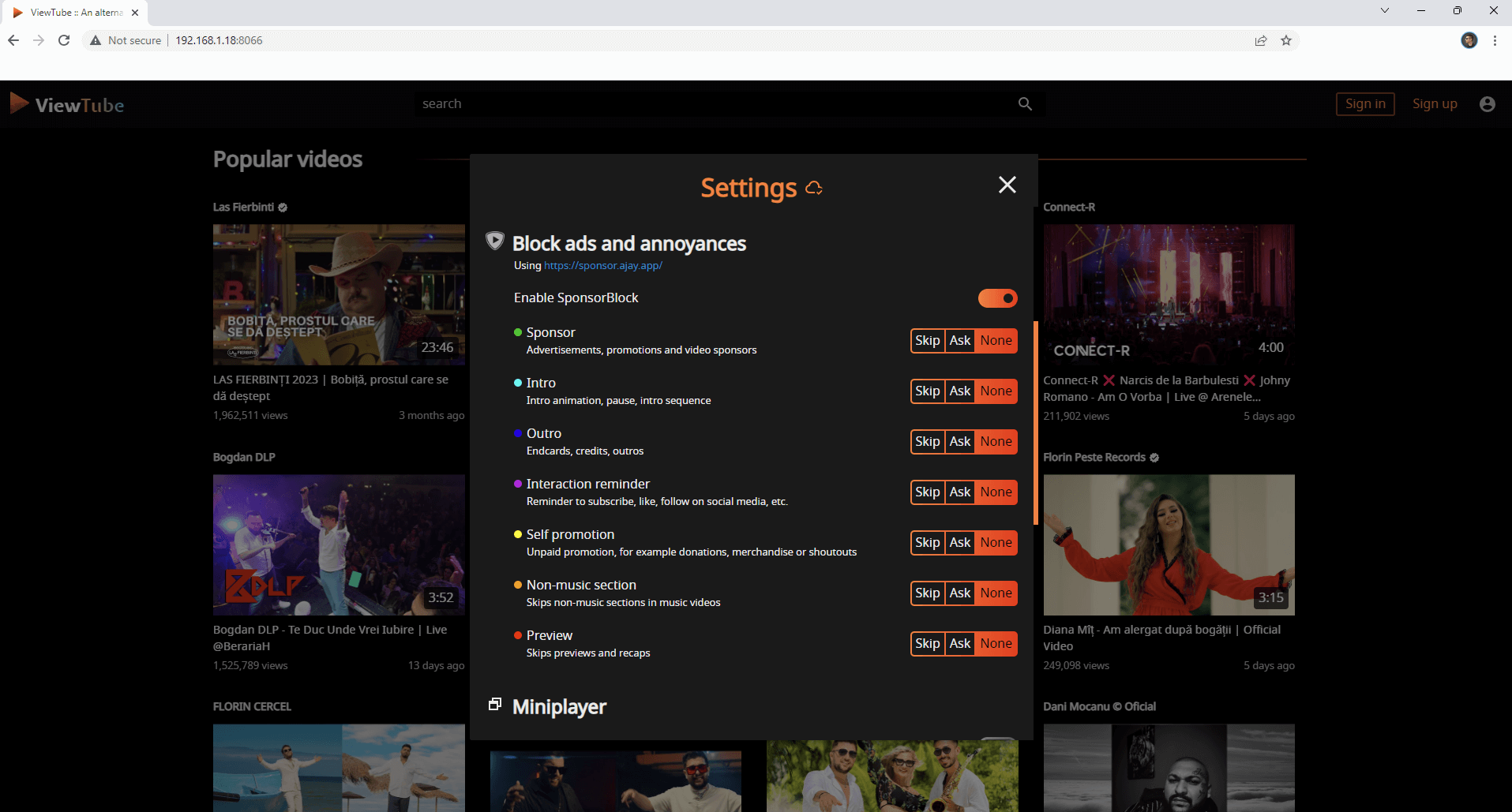
Enjoy ViewTube!
Note: If you want to run the ViewTube container over HTTPS, check How to Run Docker Containers Over HTTPS. In order to make ViewTube work over https, it’s also mandatory to set up WebSocket as well as additional environment variables in the ViewTube container as in the example below.
- VIEWTUBE_SECURE=true - VIEWTUBE_PROXY_URL=https://viewtube.yourname.synology.me - VIEWTUBE_CORS_ORIGIN=https://viewtube.yourname.synology.me
Note: Can I run Docker on my Synology NAS? See the supported models.
Note: How to Back Up Docker Containers on your Synology NAS.
Note: Find out how to update the ViewTube container with the latest image.
Note: How to Free Disk Space on Your NAS if You Run Docker.
Note: How to Schedule Start & Stop For Docker Containers.
Note: How to Activate Email Notifications.
Note: How to Add Access Control Profile on Your NAS.
Note: How to Change Docker Containers Restart Policy.
Note: How to Use Docker Containers With VPN.
Note: Convert Docker Run Into Docker Compose.
Note: How to Clean Docker.
Note: How to Clean Docker Automatically.
Note: Best Practices When Using Docker and DDNS.
Note: Some Docker Containers Need WebSocket.
Note: Find out the Best NAS Models For Docker.
Note: Activate Gmail SMTP For Docker Containers.
This post was updated on Monday / December 29th, 2025 at 11:09 PM
